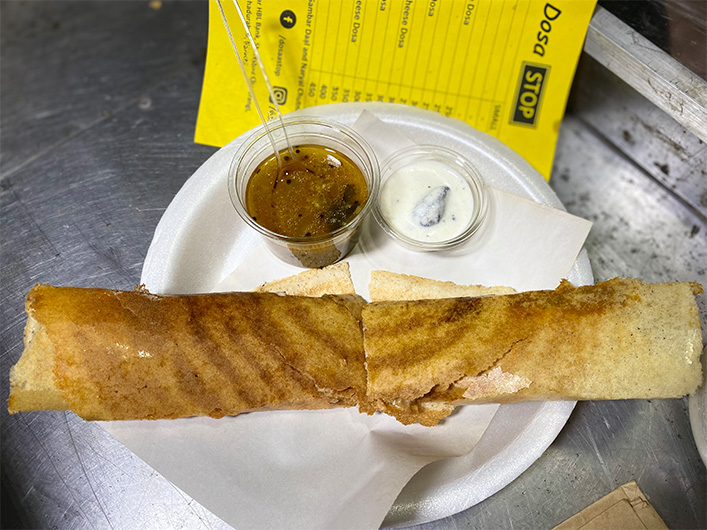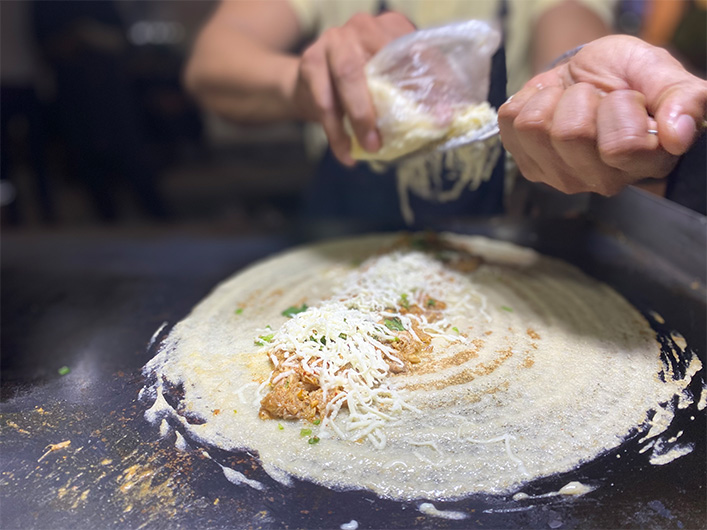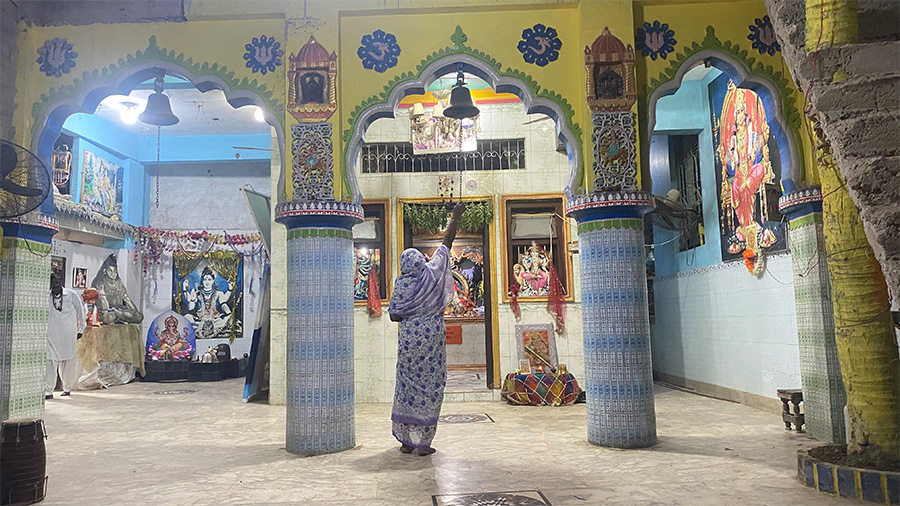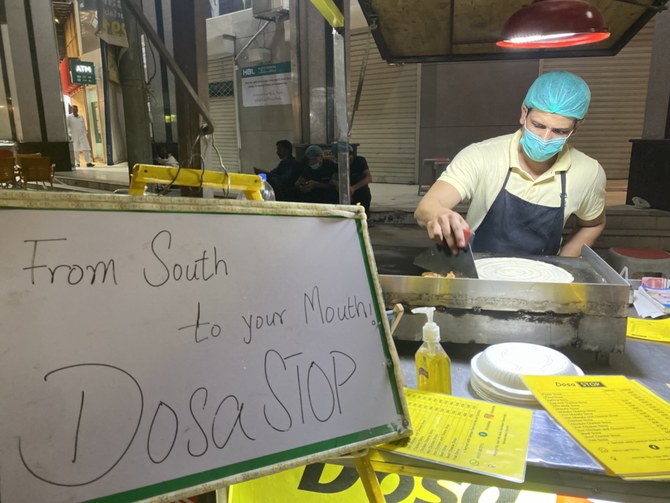KARACHI: For almost fifteen years, Frass Adnan has been selling dosas near the Char Minar roundabout in Karachi’s Bahaduraba neighborhood, the smell of fresh vegetables and smoked potatoes lingering in the air all around his food truck called ‘Dosa Point.’
Adnan lives in Madrasi Para, a neighborhood in the cantonment area of the port city, whose population mostly comprises Tamil Hindus who migrated from South India in the early 20th century before the independence of Pakistan when Karachi was being developed during the British Raj.
“My mother hails from Madras and she is the inspiration behind ‘Dosa Point’,” Adnan told Arab News.
The dosa, a thin pancake or crepe made from a fermented batter predominantly consisting of lentils and rice, originated in South India. In Karachi, one pancake sells for around Rs500 or approximately $3. A regular chapati in Pakistan costs around twenty cents.

A dosa is served with lentils and a coconut-based dip at a food cart in Karachi, Pakistan, on November 13, 2021. (AN Photo)
“The paste is made wet at night, grinded the next day and then fermented for 12 hours,” Adnan said, explaining the steep price of the dosa. “It is frozen and then defrosts. It takes almost three days to prepare one dosa.”

Muhammad Mustafa makes dosa, a South Indian pancake, at his cart in Karachi, Pakistan, on November 12, 2021. (AN Photo)
As per community estimates, at least a few hundred migrants still live in the Madrasi Para neighborhood, which is located behind the city’s Jinnah Post Graduate Medical Center. Most of the residents are Hindus, but many also belong to the Christian and Muslim faiths and have integrated with the Urdu-speaking migrant communities. Speaking South Indian languages in the area is becoming less and less common.
“The South Indians of Karachi belong to different faiths including Hinduism, Islam and Christianity, and some of our rituals are different,” said Kamachi Kanthaswamy, a 63-year-old woman from Madrasi Para, “but what unites us as a larger community of Tamils is our food.”
“I have taught it to my daughters. Every woman in our community can cook it,” she said. “Some also sell it. But I’m happy that our food is getting space in the city’s food centers. People should taste our food. It’s very delicious.”

Kamachi Kanthaswamy, a 63-year-old resident of Madrasi Para in Karachi, Pakistan, rings the bell of a temple on November 13, 2021. (AN Photo)
Muhammad Mustafa, who learnt South Indian cooking while working in Dubai, agrees. In fact, after losing his job and moving to Karachi due to coronavirus lockdowns, he didn’t hesitate to take his wife Nimra’s advice and start making and selling dosas at a food stall.
“To our surprise, every second customer has some South Indian roots and has told us our dosa tastes better than what they cook at home,” Nimra told Arab News at the couple’s food truck next to a sign that read: ‘From South To Your Mouth.’
Next to her, Mustafa filled dosas with different fillings: chicken, potatoes, crispy onions and spices. Once the dosa was ready, Nimra served it to customers with a side of sambar daal and coconut chutney.
One customer, Muhammad Saleem, whose mother was from Madras, present day Chennai, the capital of the Indian state of Tamil Nadu, said he was relieved that there were still some places in Karachi where one could get authentic dosas.
“Dosa, Idli and many other varieties of South Indian dishes are occasionally cooked in our home because my mother migrated from Chennai,” he said as he bit into his crepe, “but there are only very few eateries in the city where we can get it now.”
















